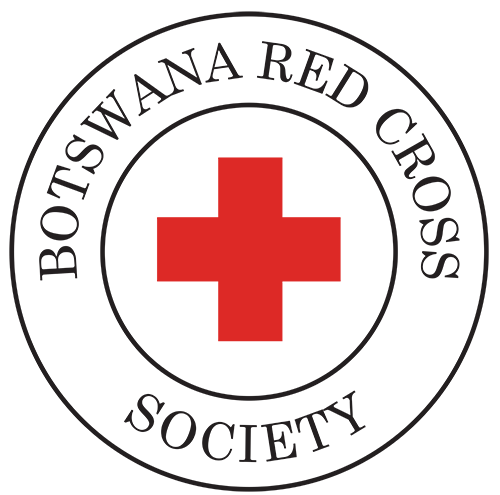Keep Up To Date {On Social Services, Disaster Management & Humanitarian Services.}
“Routine immunization important” – Dr Dikoloti
Motokwe, 10th April: Minister of Health Dr Edwin Dikoloti says State of the World Children’s report of 2023, has revealed that globally, a total of 67 million children missed out on vaccinations between 2019 and 2021.
When officiating at a ceremony aimed at appreciating integrated community-based health services project in Motokwe recently, Dr Dikoloti said this indicates that children born just before or during the advent of the COVID-19 pandemic who would normally have been vaccinated, may actually have missed crucial lifesaving vaccinations.
“This therefore, calls for urgent action to catch-up for those who missed immunizations during that dark period.” He added.
Dr Dikoloti further said the Ministry of Health, through the support of UNICEF and Botswana Red Cross Society, has been able to mobilize and implement child health services for hard-to-reach communities in some parts of the country, including the Kweneng District. He said these efforts were achieved through house-to-house visits, community engagements, mobile stops, mobile outreach and community dialogue.
Dr Dikoloti further reiterated that through these mobilization activities, community health workers managed to identify children with missed routine vaccination and as a result, MoH has been able to gather information that will inform decision making and strengthen the primary health system.
He said the Government of Botswana prioritizes health not just as a key service, but also as a human right and further implored parents to take responsibility in caring for their children.
When deliberating on the objectives of the project, Secretary General who is also Chief Executive Officer of Botswana Red Cross Society Mr Kutlwano Mukokomani said the objective of the project and its intervention was to ensure that communities are sensitized on child health issues and COVID-19.
He noted that the project also aimed at ensuring that vaccines are deployed, and other child health services are rendered at the grassroots level.
“Through this project we have provided 58 human resource support that includes 40 mobilisers, 8 data clerks, 8 vaccinators and 2 supervisors who are placed in 17 villages across the 2 districts. In addition, We have supported the delivery of services through the deployment of vehicles. These vehicles also supported the distribution of vaccines and other commodities to hard-to-reach areas.” Said Mr Mukokomani.
According to Mr Mukokomani, since the project's inception 259 339 people have been reached with health messages through various forums using different customized formats, adding that “These are people who listened when volunteers went from house to house sharing messages that vaccines work, and indeed the high number is a testament that tailor-made community messaging works.”
“To date, the project has administered 10,532 doses of vaccinations to children under 5 years. About 60% of those referred were linked and offered services. The campaign managed to administer 1276 doses of vitamin A, and 934 deworming doses to children.” He said.
Furthermore, Mr Mukokomani said in line with the reset agenda, and His Excellency the President Dr President Dr Keabetswe Masisi's call for a mindset change, the Botswana Red Cross Society has adopted the use of technology in health promotion.
“We are engaging with communities through the use of social media, chatbot and mass messaging amongst others. Despite the efficiencies of digitalization and technology, there are also challenges of misinformation and harmful rumors adding a layer of complexity to community engagement.” Said Mr Mukokomani.
He also said the digitalization of health information management is an area of improvement where there is a need to transition from paper-based systems to digital tools to facilitate real-time data collection for effective and efficient decision-making.
He concluded that in an era where multiple concurrent public health emergencies are a norm, integration is a befitting cost-effective measure of service delivery and that coordinated action amongst all public health actors is needed to ensure that efforts are not duplicated, and scarce and precious resources are not wasted.
For her part, Deputy Chief of Mission at the U.S Embassy in Botswana Ms Amanda Jacobsen said she was thrilled to acknowledge the strong partnership between the two countries, not only to strengthen Botswana’s health and well-being, but also to support the sustainable management of natural resources; provide access to credit for small and medium sized businesses and entrepreneurs; increase regional trade and participation in the African growth and Opportunity Act; enhance agricultural production; support the country’s goals to transition to clean energy; and create jobs for young people.
UNICEF Representative Ms Joan Matji highlighted that this joint project made sure that routine immunization is strengthened.
She further said the UNICEF has partnered with Botswana Red Cross Society in similar initiatives, and that the UNICEF is particularly grateful for the community liaison that the Botswana Red Cross Society brings.
Ms Matji acknowledged caregivers and community members who continue to host the community health workers in their homes to for the benefit of children.ENDS

